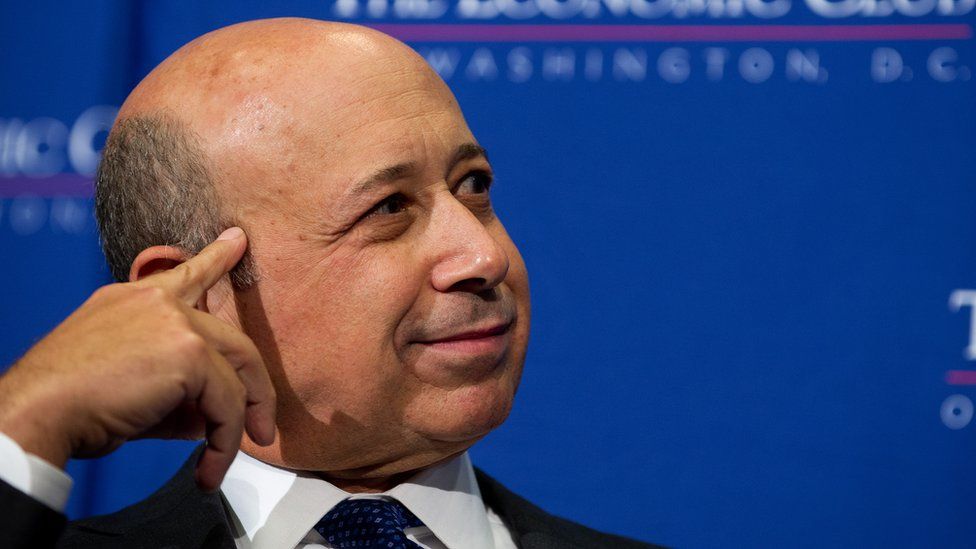Want to think like Goldman? Check out this reading list
- Published

If you want to think like some of the most successful minds on Wall Street, then you might want to head over to the nearest bookstore.
Goldman Sachs' "back-to-school" reading list for "every age and career stage" is the kind of information any ambitious City-type is likely to lap up.
But the recommendations, from some of its top management in London, New York and Tokyo, isn't all dry economics and finance.
It follows chief executive Lloyd Blankfein's advice to interns that they should take time to "chill out" and read fewer economics textbooks.
So what do Goldman's people recommend?
Liz Bowyer, executive in the New York office:
Dispatches, by Michael Herr
"[An] essential work of reportage on Vietnam. When Herr died this summer, I decided to re-read it, and was once again struck by how viscerally he captured the war experience. Herr renders Vietnam as at once terrifying and desensitising, while also expressing the disaffection of a generation."
The Noise of Time, by Julian Barnes
"Barnes constructs an imagined inner narrative of the Russian composer Dmitri Shostakovich as he grapples with the idea of truth in life and art under Stalin's regime. It's breathtaking."
Bobby Vedral, Securities Division, London:
Inverting the Pyramid: the History of Football Tactics, by Jonathan Wilson
"For all the sports/soccer fans out there - this is an excellent book that describes how football tactics have evolved over time. Applicable to our work - as it shows how "change is the only constant."
World Order, by Henry Kissinger
"Nobody knows the world of politics & diplomacy better than Henry Kissinger - an absolute and undisputed numero uno!"
Shigeki Kiritani, Investment Management Division, Tokyo:
Guns, Germs, and Steel: the Fates of Human Societies, by Jared Diamond
"Europeans conquered other continents with guns, germs and steel. What makes the difference between conquerors and conquered? The author demonstrates from various points of view that it wasn't because of the superiority or inferiority of particular races, but because of the geographical and ecological advantages that Eurasian continent offered to the people lived there.
"For example, in Eurasia, there happened to be plants and animals suitable for domestication, which could be transferred and shared relatively easily across the continent. Fun reading with lots of intellectual stimulation."
Kent Clark, Investment Management Division, New York:
Churchill: A Life, by Martin Gilbert
"This is a good one volume biography of Churchill by Martin Gilbert, who was the 'official' Churchill biographer. I think Churchill is as interesting for his mistakes and failures as he is for his successes, his seemingly boundless energy and curiosity, and for having been an incredibly prolific writer.
"The biography gives good perspective on some of the most important events of the 20th Century, at least as seen from Churchill's vantage point. Unless you have a good knowledge of the political figures of this era, I'd recommend an e-book edition since you can easily get a bit of information on the many characters who feature throughout the book."
- Published24 June 2016